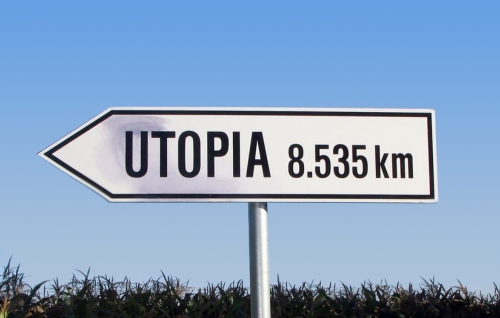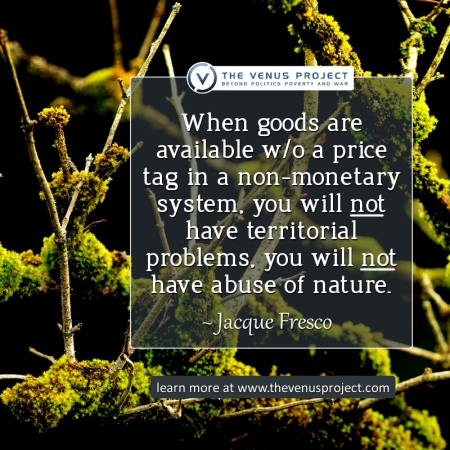By Enrique Lescure
Introduction
I have previously argued that the current “western” civilization is not older than circa 1950, and that it is mainly characterised by a concept which I have termed “consumeristic individualism” (but it can equally easy be termed “individualistic consumerism“). In most traditional societies, a person’s identity is formed centred between ethnic heritage and family lines, religious belonging and profession (which most often is inherited). In the modern western civilization, identity is formed around consumer choices, which both serve to construct an identity and to create an incentive for people to both produce and consume, since consumption demands access to money, and with little ability to consume goods that signal status (cars, new cellphones, designer clothes, expensive travels, club memberships at exclusive exercise clubs), the social status of the individual is suffering.
Proponents of the current system are claiming that this current system is really what would naturally form when the vestiges of traditional social-hierarchic societies and patriarchal norms are broken down. People then tend to become ambitious consumers who naturally crave the kind of society that for the second half of the 20th century best was exemplified by “the Big Apple”. Thus, it would – according to said proponents – be an infringement on liberty to restrict the “natural development” of the consumer society.
Even when everyone knows that the current society, with its need and focus on exponential economic growth is building up wealth that is unsustainable since it depends on the destruction of the biosphere, the solutions proposed are generally that individuals should conform to other consumeristic patterns, and instead of for example travelling to Mallorca, go to an expensive ecological coffee-shop and drink a cappuchino made from expensive Nicaraguan beans. That could also serve to separate the young middle class, Homo Hipsteriensis, from the behaviour patterns of their parents (since consumeristic individualism is about a permanent distance from the culture even of the immediate forebears), and of the “unwashed working classes”, who enjoy American Idol, fast food and cheap travels to Sunny Beach in Bulgaria.
I would not, however, argue that consumeristic individualism within the context of capitalism, is equal to “human nature”, and that it in fact – like every other major culture and civilization on Earth, is largely artificially formed and then organically evolved. Thus, we need to see it not as a “passive” absence of social control, but as an environment which has been actively engineered to produce certain behavioural patterns.
TL;DR
- Modern Western Civilization owes its existence to a fusion of psychology and marketing, namely public relations.
- This means a continuous appeal to reach the subconscious of the public and try to make it susceptible to behavioural conditioning.
- This conditioning, in the case of our current civilization, aims to make people buy goods and services which they otherwise would not have felt they would need.
- Another effect is the creation of a sense of inadequacy in people, an inadequacy which can be “cured” through the appropriation of a certain ideal which is available for money.
- The identity that is formed is also dependent on the adherence to certain consumeristic norms and to the values and fads of the group that the individual in question is trying to “mirror”.
- We need to start to question whether people without consent should be exposed to marketing in public spaces.
A short historical background
Advertisement has existed since the foundation of civilization, both in the form of notifying people of the availability of goods and services they crave, and as political propaganda. During the early 20th century, a massive socio-technological transformation occurred with the advent of mass information – in the form of film, radio, TV and telephone communications, making the world far smaller.
It can be said that two new kinds of civilizations emerged from these technologies, namely the “totalitarian civilization” and the “consumeristic civilization“. Even if this is a subject of an article which will come later on, I believe that technology shapes society more than society shapes technology (even if there is a self-enstrenghtening chicken-egg process there). The ascent of mass information technology made possible both the mass democracies and the totalitarian dictatorships of the 20th century. If pre-industrial leaders, such as the emperors of Rome, China and India, or old absolutist European sovereigns as Louis XVI, Charles XII or Pyotr Velikiy had access to modern information technology, their states would soon have started to resemble fascist totalitarianism.
I believe that it was a matter of time, given the way western society was structured during the early 20th century for mass media to being used to improve the market shares of companies. Another recently discovered science – psycho-analysis – was employed to pioneer more efficient marketing strategies. Two of the pioneers were Edward Bernays and Walter Lippmann, who both defined the theories around Public Relations and also engaged in this emergent market as well.
Previously, before the 1920’s, advertising had largely been a question of making consumers aware of the existence of products and then try to appeal to their rational minds with a text purporting to show the alleged health benefits of for example nicotine-related products. After the 1920’s, it became more a question of appealing to the subconscious. Instead of an image of a box with cigarettes, the consumer was presented with a poster depicting an attractive female moviestar smoking Marlboro, with a minimum of text.
What had been a way for companies to gain comparative advantage during the 1920’s, developed into a full-scale  civilization during the 1950’s. This was partially due to the expansion of the welfare state, which gave the western working class access to the ability to pursue the attainment of subcultural status items. Combined with the acent of Television, this meant that popular music, celebrities and choices associated with their lifestyles were emulated by millions of youths.
civilization during the 1950’s. This was partially due to the expansion of the welfare state, which gave the western working class access to the ability to pursue the attainment of subcultural status items. Combined with the acent of Television, this meant that popular music, celebrities and choices associated with their lifestyles were emulated by millions of youths.
Nowadays, three generations have grown up under individualistic consumerism, and a fourth generation is currently growing up under it. During the 1950’s, with a population still roughly balanced between the countryside and urban centres, subcultural patterns were mostly marked by music taste, age (youths) and certain fashions in terms of clothes.
Nowadays, in the most developed and americanized western countries (the Anglo-American and Scandinavian regions), far more things have become a matter of subculturalization and consumerism. Often, we fool ourselves to believe that consumerism is just a matter of quantity and the individual, when the truth is that it has become a tool for socialization in the contemporary Western world (as well as in the most developed and urban parts of what previously was called the Third World).
Today, subculturalization has branched out to contain musical taste, fashion clothes, what exercise routines you have, what TV shows you like, what news sources you get your news from, what kind of places you travel to when you have vacation, and your political opinions. The ascension of the Internet has served to further compartmentalize reality, allowing people to build self-reinforcing echo chambers and thus homogenize themselves in smaller and smaller cliques. This has also led to subcultures creeping upward in terms of age groups – meaning that today there are entire groups of professionals who largely share the same traits in terms of taste.
The risks with this development
There are several problems with this kind of development. There is one which is obvious and which has already caused suffering for millions of people, especially young women. Then there is another, which is less overt but which risks affecting the ability to reason and to act long-term. The third challenge is a matter of identity, and is the most subtle of these problems.
The first problem is the overt focus on beauty, youth and (when it comes to women) slenderness. The sexualization and idealization of the young female body, which is existent all over public space in urban areas, creates not only a desire to own new bikinis, handbags or cars, but also a desire in the female viewer to strive towards these ideals. Not all females are however able to conform to these ideals, and this can lead not only to suffering but to mental problems and self-harm behaviour, up to suicide.
The second problem is a matter of information. Nowadays, an average human being is receiving far more information than our pre-industrial ancestors could ever imagine to receive. Even if your awareness doesn’t know of it, our minds register and store all information regardless of its utility. This means that what we are seeing and experiencing around us, no matter if we want to be affected by it or not, is stored as memories and associators. Today, the window for advertisement to catch the conscious attention of the individual has shrunk to a matter of seconds, since people (predictably) have needed to be able to forcefully avoid the kind of information that they will not need. The massive quantity of information has forced through this adaption.
Also, the clutter of information makes it difficult for the ordinary media consumer to build up their ability to see medium- and long-term trends in terms of social development. Rather, reality turns into one giant, fluid “present“, that seemingly becomes more and more senseless. That makes it difficult to form opinions regarding social development and politics.
The third problem connects to the socializing aspects of individualistic consumerism, namely that individuality has become a matter of categories and physical attributes. If human beings are confusing external attributes with any form of inner essence (to external attributes we can count skin colour, sexual orientation and gender), and relate the consumption of particular goods and service to that purported essence, we will soon constrain the ability of human beings to grow and develop character. This uncertainty can stunt human beings and keep them in a permanent state of adolesence.
Ultimately, it also means that when people form their opinions around matters, they often will think of how trendy the opinion is to focus on, how it relates to the group the individual aims to belong, and to the subcultures shaped by mutual reinforcement from the subcultures themselves and mass media, which categorises and helps to market subcultures that originally were authentic. So for example, a Social Liberal may be supportive of actions intended to curb climate change, but doesn’t actually care about the issue itself in any other regard than that it will yield her likes on Facebook and Twitter. Likewise, a conservative might post images that make fun of public healthcare, without even having an idea of how public healthcare works in their own country. This is made possible by the subculturalization of political opinions and the construction of self-imposed echo chambers.
All these three problems, in different ways, are making it more difficult to sustain a rational public discourse (at least regarding the “public” bit). They all are making it more difficult too to focus on what our current civilization is, and why it is problematic in relationship to the planet, since everything turns into an issue about the ego, and the ego’s relationship to other egos.
Sanitizing public space
The Brazilian city of Sao Paulo recently banned advertising in public space, and it is only to congratulate that decision.
Of course, the decision to ban out-door advertising can be accused of being “authoritarian”, “statist” or “communistic”, but in fact, it is the kind of decision that actually serves to extend the autonomy and liberty of the individual. The reason why is that most of the individuals living and visiting a city have not actually consented to be exposed to massive billboards of public advertising. They may passively consent to it, because they generally have taken it as granted. But the people of middle age European cities generally passively consented to (and cheered) the display to severed heads impaled on poles.
If people want to expose themselves for advertising, they should be able to enter malls or shops. Companies do not however have any right to try to affect the subconscious minds of people and try to condition them to certain behaviours.
This also puts the kind of environmentalism that preaches that we need to change consumer behaviour by consuming in an intelligent manner. That environmentalism is kind-hearted, but is naïve in its relationship to the existing civilization. In short, they tend to view the current world that we have today as a result of the consumer choice, rather than to view the consumer as a concept created artificially within the context of the current civilization.
We need to transition towards a sustainable future, characterised by devotion to Life on Earth, empathy towards all living beings and enlightenment. That means that we need to build up an education system and a society that strengthens individual character and mental resourcefulness, builds on autonomy and ability to understand and master knowledge, and which is centred around an inclusive and life-focused culture.
It takes at least three generations to build a civilization, and in order to save the Biosphere, we not only need to stop the current civilization from devouring it, but also build a new civilization. That requires several pro-active steps and the evolution of a new culture within the context of networks that we build up and support.
But it also must mean political steps in order to curb and restrict aspects of the current civilization. These steps must be designed in a manner that they respect individual choice and autonomy.
I can not however see how limiting clutter from the public view is a breach of individual autonomy.













































